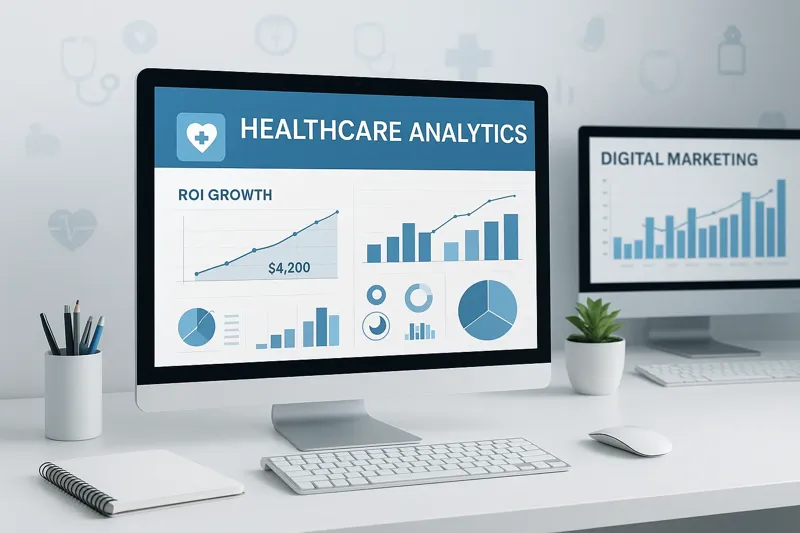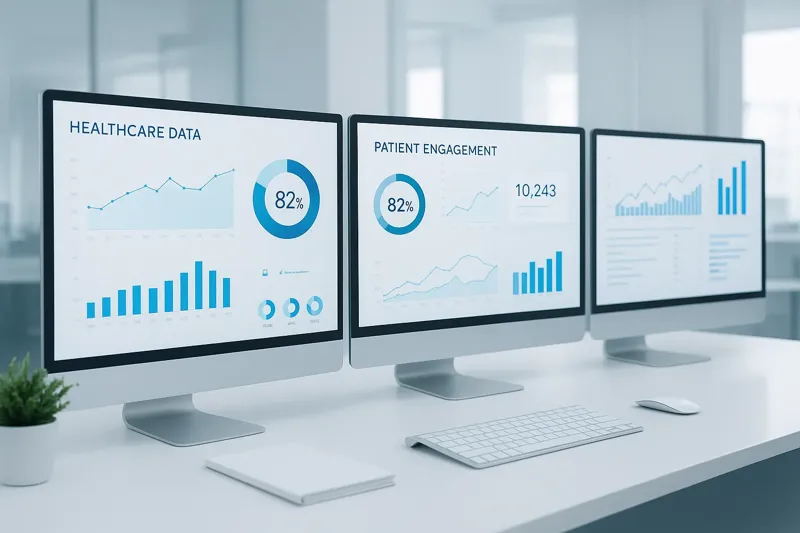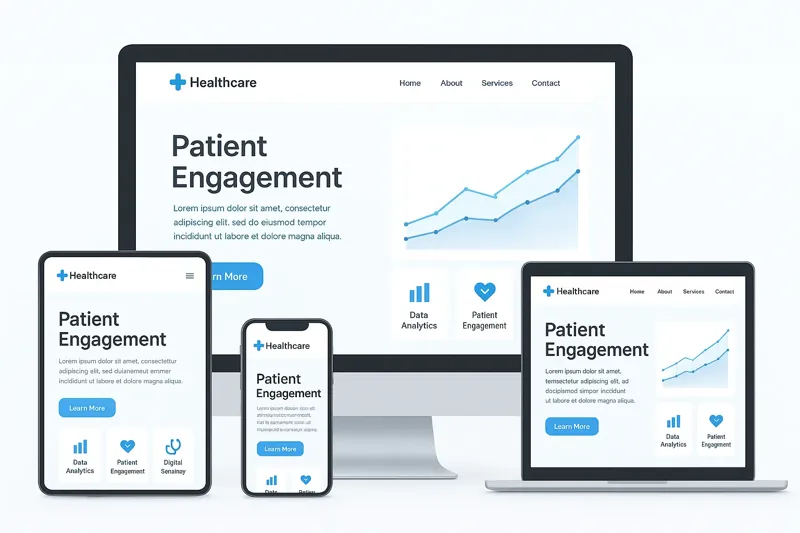The Critical Role of Reputation in Healthcare
In today's digital world, the online reputation of medical providers profoundly influences patient decisions and practice success. With over 80% of patients relying on online reviews and ratings, effective reputation and review management have become indispensable strategies for healthcare professionals. This article explores proven tactics and tools that medical providers can implement to build trust, enhance credibility, and maintain a competitive edge through exemplary online presence and patient engagement.
Understanding the Impact of Online Reputation on Patient Choices
How significant are online reviews in patients' selection of medical providers?
Online reviews play a critical role in how patients select medical providers. Nearly 84% to 94% of patients use online reviews to evaluate healthcare professionals before booking appointments. Reviews often serve as their initial point of reference, with 77% to over 90% of patients citing these evaluations as their first step in choosing a doctor. For more on the Importance of Online Reviews for Doctors and Patient Use of Online Reviews, see resources on reputation management in healthcare.
Influence of online reviews on patient decision-making
The impact of online feedback extends beyond casual browsing. Positive reviews build trust, establish credibility, and help patients feel more confident in their choice. Conversely, a poor online reputation drastically reduces a provider's chances of being selected. Around 83% to 84% of patients are unlikely to visit doctors rated below four stars, highlighting how online ratings directly affect patient flow. Learn more about How Patients Use Online Reviews and strategies for Building Trust Through Positive Online Reputation.
Consequences of poor online reputation for medical providers
A negative online presence can lead to decreased patient trust, fewer referrals, and ultimately a decline in clinic revenue. It can also affect professional opportunities and the ability to attract skilled healthcare staff. Thus, managing and maintaining a positive online reputation is essential for healthcare providers to compete effectively and grow their practices. Effective Reputation Management for Doctors includes Responding to Negative Reviews Professionally and proactive engagement with patient feedback.
Maintaining accurate, updated reviews and actively engaging with patient feedback are important steps towards a favorable online image in today’s healthcare environment. Explore tools and tactics for Optimizing Digital Presence for Doctors and Using Patient Surveys Effectively to improve your online reputation.
Strategies for Encouraging and Managing Patient Feedback
Encouraging patient reviews through multiple channels
Healthcare providers can boost online reputation by actively prompting patients for feedback across diverse platforms. Common methods include in-office verbal requests, follow-up SMS and email messages, and digital surveys sent immediately after appointments. Utilizing QR codes and direct links simplifies the process, making it easy for patients to share their experiences on popular review sites like Google, Healthgrades, and Yelp.
Timing and ease of submitting reviews
Timing is critical for maximizing review submissions. Automated requests sent shortly after the patient visit—especially via SMS—can significantly increase the likelihood of patients leaving positive feedback. Providing a smooth and straightforward submission process, via mobile-friendly surveys or quick review links, reduces friction and encourages more patients to contribute their perspectives (Medical Reputation Management Strategies, Review and Reputation Management Software).
Handling negative reviews professionally
Negative feedback should be addressed with professionalism and empathy to protect a provider's reputation. Prompt acknowledgment of concerns, expressing gratitude for the feedback, and offering to resolve issues offline demonstrate care and accountability. Following up with the patient after resolution efforts can rebuild trust. Importantly, responses must respect patient privacy and comply with healthcare regulations like HIPAA, avoiding disclosure of sensitive information (Responding to Negative Reviews Professionally, Legal Considerations in Medical Reputation Management).
What are effective ways to encourage patient feedback and handle negative reviews?
Healthcare providers should encourage feedback through multiple channels such as in-office prompts, SMS, email follow-ups, and digital surveys immediately post appointment. Simplifying review submission with QR codes or direct links enhances response rates. Professional and timely responses to all reviews, especially negative ones, involve acknowledging concerns, offering offline resolution, and following up. These steps help maintain a positive reputation and rebuild patient trust effectively (Best Practices in Medical Reputation Management, Encouraging Patient Feedback, Handling Negative Reviews Professionally).
Optimizing Digital Presence to Build Credibility and Visibility

How can medical providers optimize their digital presence to improve reputation?
Medical providers can significantly enhance their reputation by establishing and maintaining a robust digital presence. The first step is claiming and consistently updating profiles on major healthcare and review platforms such as Google Business Profile, Healthgrades, Yelp, Zocdoc, Vitals, and WebMD. Accurate and detailed listings help ensure patients find correct information and build trust through consistent contact details and service descriptions.
Optimizing profiles with high-quality photos, comprehensive service offerings, and regularly updated information also improves local search engine optimization (SEO), boosting visibility in search results. Providers should create and maintain SEO-friendly website content, including frequently asked questions (FAQs), educational blog posts, and detailed information about services and providers. This content not only informs patients but also drives traffic and supports better search rankings (Strategies for Doctors' Online Reputation.
Active engagement on social media platforms is another critical element. Sharing provider bios, health tips, patient testimonials, and responding to patient inquiries on platforms like Facebook, Instagram, and X (formerly Twitter) helps foster community trust and enhances reputation (Building Patient Trust Online). This multifaceted approach to digital presence elevates a provider’s credibility, promotes positive patient experiences, and attracts new patients through improved online visibility (Reputation Management For Doctors).
Leveraging Reputation Management Software and Tools

What role do reputation management software tools play in medical providers’ online reputation?
Reputation management software is essential for healthcare providers to maintain a positive online image. Platforms such as DocResponse, AdvancedMD, Birdeye, Emitrr, Chatmeter, rater8, and Relias automate the collection of patient reviews, enabling providers to gather more feedback efficiently. These tools monitor online reviews in real time, facilitating prompt and professional responses to both positive and negative comments.
Many platforms utilize sentiment analysis powered by artificial intelligence to quickly identify patient concerns, trends, or areas needing improvement. This capability allows providers to act proactively, improving patient experiences and preventing reputation damage.
Most software integrates seamlessly with electronic health records (EHR) and practice management systems, ensuring HIPAA compliance and simplifying workflow. This integration helps in automating review prompts soon after patient visits, increasing the likelihood of obtaining feedback. Such holistic approaches streamline multi-platform review management, enhance patient engagement, and support overall reputation growth.
Benefits of reputation management platforms
Reputation management tools offer multiple benefits including:
- Increased volume and quality of patient reviews through automated requests
- Real-time monitoring of online presence across numerous review sites
- Sentiment analysis for comprehensive insight into patient feedback
- Streamlined responses that uphold professionalism and comply with privacy laws
- Integration with existing healthcare IT systems for smooth operational flow
- Competitive advantage by enhancing patient trust and search engine visibility
Features such as automated review requests, monitoring, and sentiment analysis
Top reputation management platforms provide key features such as:
- Automated Review Requests: Timely prompts via SMS or email encourage patients to leave reviews when their experience is fresh.
- Review Monitoring Dashboard: Centralized platform dashboards consolidate reviews from Google, Healthgrades, Yelp, and more for broad oversight.
- Sentiment Analysis: AI tools categorize feedback as positive, neutral, or negative, helping prioritize responses and identify systemic issues.
- Response Management: Tools often include HIPAA-compliant templates and workflows to maintain professionalism and patient confidentiality.
Integration with healthcare systems
Leading software integrates with Electronic Health Records (EHR) and Practice Management Systems (PMS) such as eClinicalWorks, enabling:
- Automatic triggering of review requests post appointment
- Consolidation of patient data for personalized engagement
- Streamlined feedback collection connected directly with patient records
- Assistance in compliance with healthcare privacy regulations
This integration reduces administrative burden and ensures feedback collection is consistent and efficient, contributing to a robust online reputation.
Overall, leveraging reputation management platforms is a strategic imperative for healthcare providers to build trust, gain new patients, and maintain competitive advantage in an increasingly digital healthcare environment.
Creating a Positive Patient Experience to Enhance Reviews
How does patient experience influence online reputation for medical providers?
Patient experience plays a crucial role in shaping the online reputation of medical providers. Delivering excellent patient care not only improves satisfaction but also encourages patients to share positive reviews online. Clear communication, empathy, and a welcoming environment are essential for fostering trust and confidence among patients, which directly translates into stronger reputations.
Improving communication, reducing wait times, and providing comfortable environments
Healthcare providers can enhance patient experience by focusing on three main areas:
- Improving Communication: Clear, respectful, and empathetic communication helps patients feel understood and valued. This aligns with best practices in medical reputation management that emphasize effective communication in healthcare.
- Reducing Wait Times: Efficient scheduling and minimizing delays reduce patient frustration and improve overall experience. Reducing wait times has been identified as critical in improving patient experience.
- Comfortable Environments: Clean, friendly, and soothing office settings contribute positively to patient perceptions, which impacts patient satisfaction surveys and reputation management.
These factors influence patient satisfaction levels, which are often reflected in online reviews.
Training staff for better patient interactions
Staff training is vital to ensure every patient interaction is positive. Educating healthcare teams on interpersonal skills, customer service, and handling feedback professionally creates a culture of care. Well-trained staff not only improve patient experience but also encourage more favorable reviews and testimonials, further enhancing online reputation.
By prioritizing a positive patient experience, medical providers can significantly boost their online presence and build lasting trust with their communities.
Proactive Engagement with Online Reviews and Social Proof
Best Practices for Engaging with Online Reviews and Leveraging Social Proof
Engaging effectively with online reviews is essential for healthcare providers to build trust and enhance their reputation. Responding promptly and professionally to both positive and negative reviews shows attentiveness and a commitment to patient care. Public responses demonstrate transparency and accountability, while private messages help resolve specific concerns discreetly.
Highlighting authentic patient testimonials and case studies on your website and social media channels can significantly boost credibility. These real-life success stories create social proof that reassures prospective patients about the quality of care.
Maintaining an active presence on social media platforms allows medical practices to connect with their community, provide helpful content, and respond to patient inquiries. This ongoing engagement supports reputation growth by humanizing the practice and demonstrating expertise (Using Social Media for Reputation.
By combining thoughtful review responses, showcasing positive experiences, and sustaining social media activity, healthcare providers can foster greater patient trust and differentiate themselves in a competitive market (Building Trust Through Positive Online Reputation.
Monitoring Reputation Metrics and Patient Feedback Analytics

How can medical providers monitor and use reputation metrics to improve their practice?
Medical providers can effectively monitor reputation by leveraging specialized healthcare reputation management software. These platforms offer centralized dashboards that track essential metrics such as the volume of patient reviews, average star ratings, and the sentiment of patient feedback. In addition, analytics often include website traffic and social media engagement data, providing a comprehensive overview of a provider's online presence (What is Reputation Management? A Guide for Healthcare Providers to Build Trust Online).
Analyzing these data points allows providers to pinpoint specific operational challenges, such as scheduling inefficiencies or front-desk communication issues, which frequently emerge in patient reviews (Reputation Management Strategies). This insight guides targeted interventions aimed at improving patient experiences (Improving Patient Experience.
Benchmarking is another valuable feature offered by many tools, enabling healthcare providers to compare their reputation metrics against competitors or industry averages (Rater8 Healthcare Reputation Management). By understanding their competitive standing, providers can strategize improvements to gain a stronger market position (Healthcare Reputation Management Strategies).
Continuous review and interpretation of feedback trends support iterative enhancements within the practice. This proactive approach not only fosters patient trust but also bolsters online credibility and can drive increased patient acquisition (Physician Reputation Management.
Ultimately, integrating reputation metrics and patient feedback analytics into quality improvement initiatives creates a cycle of enhanced patient satisfaction and elevated professional reputation, essential for thriving in today’s competitive healthcare landscape (Reputation Management for Doctors.
Legal and Ethical Considerations in Reputation Management

What legal and ethical factors should medical providers consider in online reputation management?
Medical providers must navigate crucial legal and ethical considerations to manage their online reputation effectively and responsibly.
First and foremost, protecting patient privacy under HIPAA (Health Insurance Portability and Accountability Act) is non-negotiable. When responding to patient reviews, providers should avoid disclosing any Protected Health Information (PHI). This means keeping responses general, polite, and professional without referencing specific patient details or conditions. Maintaining confidentiality preserves trust and ensures compliance with legal standards.
Another major ethical concern is avoiding fake reviews and overpromising. Encouraging authentic patient feedback is vital, but offering incentives or posting fabricated reviews undermines credibility and violates ethical norms. Overpromising treatment outcomes in responses can mislead patients and damage professional integrity. Thus, providers should uphold honesty and transparency in all communications.
Professionalism and compliance in responses are equally important. Replies to both positive and negative reviews should demonstrate empathy, thank patients for their feedback, and if issues are raised, offer to address them offline to protect privacy and further discuss concerns. Maintaining a respectful tone, avoiding defensiveness, and carefully crafting responses to meet HIPAA requirements showcase a commitment to patient care and ethical standards.
Overall, successful reputation management hinges on balancing proactive engagement with strict adherence to privacy laws and ethical guidelines, ensuring that communications build trust without compromising professional or legal responsibilities.
Building Long-Term Trust and Competitive Advantage Through Reputation Management

How does effective reputation management benefit medical providers in the long term?
Effective reputation management for doctors plays a critical role in the sustained success of healthcare providers. A well-managed online reputation not only attracts new patients but also increases patient retention by fostering trust and credibility. This trust translates to community confidence, which directly impacts practice growth and long-term revenue.
Beyond patient acquisition, a strong reputation enhances professional opportunities. Providers with positive reputations are more likely to engage in research collaborations and strategic partnerships, which further elevate their standing in the medical community.
Maintaining consistent branding across both online and offline channels is key to long-term reputation. Ensuring that the patient experience aligns across digital platforms and face-to-face interactions reinforces a dependable brand promise. This uniformity builds reliability, helping providers stand out in competitive markets. It also reduces risks associated with negative publicity or unfavorable reviews, providing a safeguard for the provider’s image.
By proactively managing their reputation, healthcare providers gain a lasting competitive advantage, improving patient loyalty, professional relationships, and overall market position.
Sustaining Excellence Through Strategic Reputation Management
In the healthcare industry, where trust and credibility are paramount, effective reputation and review management is no longer optional but essential. Medical providers who proactively engage patients for feedback, optimize their digital footprints, harness advanced reputation software, and consistently deliver outstanding care create lasting positive impressions that influence patient choices. Balancing legal compliance with empathetic communication, and continuously monitoring reputation metrics, empowers providers to navigate challenges and capitalize on opportunities. Ultimately, a strategic approach to reputation management fosters patient loyalty, professional growth, and a resilient presence in the competitive healthcare environment.
The Critical Role of Reputation in Healthcare
In today's digital world, the online reputation of medical providers profoundly influences patient decisions and practice success. With over 80% of patients relying on online reviews and ratings, effective reputation and review management have become indispensable strategies for healthcare professionals. This article explores proven tactics and tools that medical providers can implement to build trust, enhance credibility, and maintain a competitive edge through exemplary online presence and patient engagement.
Understanding the Impact of Online Reputation on Patient Choices
How significant are online reviews in patients' selection of medical providers?
Online reviews play a critical role in how patients select medical providers. Nearly 84% to 94% of patients use online reviews to evaluate healthcare professionals before booking appointments. Reviews often serve as their initial point of reference, with 77% to over 90% of patients citing these evaluations as their first step in choosing a doctor. For more on the Importance of Online Reviews for Doctors and Patient Use of Online Reviews, see resources on reputation management in healthcare.
Influence of online reviews on patient decision-making
The impact of online feedback extends beyond casual browsing. Positive reviews build trust, establish credibility, and help patients feel more confident in their choice. Conversely, a poor online reputation drastically reduces a provider's chances of being selected. Around 83% to 84% of patients are unlikely to visit doctors rated below four stars, highlighting how online ratings directly affect patient flow. Learn more about How Patients Use Online Reviews and strategies for Building Trust Through Positive Online Reputation.
Consequences of poor online reputation for medical providers
A negative online presence can lead to decreased patient trust, fewer referrals, and ultimately a decline in clinic revenue. It can also affect professional opportunities and the ability to attract skilled healthcare staff. Thus, managing and maintaining a positive online reputation is essential for healthcare providers to compete effectively and grow their practices. Effective Reputation Management for Doctors includes Responding to Negative Reviews Professionally and proactive engagement with patient feedback.
Maintaining accurate, updated reviews and actively engaging with patient feedback are important steps towards a favorable online image in today’s healthcare environment. Explore tools and tactics for Optimizing Digital Presence for Doctors and Using Patient Surveys Effectively to improve your online reputation.
Strategies for Encouraging and Managing Patient Feedback
Encouraging patient reviews through multiple channels
Healthcare providers can boost online reputation by actively prompting patients for feedback across diverse platforms. Common methods include in-office verbal requests, follow-up SMS and email messages, and digital surveys sent immediately after appointments. Utilizing QR codes and direct links simplifies the process, making it easy for patients to share their experiences on popular review sites like Google, Healthgrades, and Yelp.
Timing and ease of submitting reviews
Timing is critical for maximizing review submissions. Automated requests sent shortly after the patient visit—especially via SMS—can significantly increase the likelihood of patients leaving positive feedback. Providing a smooth and straightforward submission process, via mobile-friendly surveys or quick review links, reduces friction and encourages more patients to contribute their perspectives (Medical Reputation Management Strategies, Review and Reputation Management Software).
Handling negative reviews professionally
Negative feedback should be addressed with professionalism and empathy to protect a provider's reputation. Prompt acknowledgment of concerns, expressing gratitude for the feedback, and offering to resolve issues offline demonstrate care and accountability. Following up with the patient after resolution efforts can rebuild trust. Importantly, responses must respect patient privacy and comply with healthcare regulations like HIPAA, avoiding disclosure of sensitive information (Responding to Negative Reviews Professionally, Legal Considerations in Medical Reputation Management).
What are effective ways to encourage patient feedback and handle negative reviews?
Healthcare providers should encourage feedback through multiple channels such as in-office prompts, SMS, email follow-ups, and digital surveys immediately post appointment. Simplifying review submission with QR codes or direct links enhances response rates. Professional and timely responses to all reviews, especially negative ones, involve acknowledging concerns, offering offline resolution, and following up. These steps help maintain a positive reputation and rebuild patient trust effectively (Best Practices in Medical Reputation Management, Encouraging Patient Feedback, Handling Negative Reviews Professionally).
Optimizing Digital Presence to Build Credibility and Visibility

How can medical providers optimize their digital presence to improve reputation?
Medical providers can significantly enhance their reputation by establishing and maintaining a robust digital presence. The first step is claiming and consistently updating profiles on major healthcare and review platforms such as Google Business Profile, Healthgrades, Yelp, Zocdoc, Vitals, and WebMD. Accurate and detailed listings help ensure patients find correct information and build trust through consistent contact details and service descriptions.
Optimizing profiles with high-quality photos, comprehensive service offerings, and regularly updated information also improves local search engine optimization (SEO), boosting visibility in search results. Providers should create and maintain SEO-friendly website content, including frequently asked questions (FAQs), educational blog posts, and detailed information about services and providers. This content not only informs patients but also drives traffic and supports better search rankings (Strategies for Doctors' Online Reputation.
Active engagement on social media platforms is another critical element. Sharing provider bios, health tips, patient testimonials, and responding to patient inquiries on platforms like Facebook, Instagram, and X (formerly Twitter) helps foster community trust and enhances reputation (Building Patient Trust Online). This multifaceted approach to digital presence elevates a provider’s credibility, promotes positive patient experiences, and attracts new patients through improved online visibility (Reputation Management For Doctors).
Leveraging Reputation Management Software and Tools

What role do reputation management software tools play in medical providers’ online reputation?
Reputation management software is essential for healthcare providers to maintain a positive online image. Platforms such as DocResponse, AdvancedMD, Birdeye, Emitrr, Chatmeter, rater8, and Relias automate the collection of patient reviews, enabling providers to gather more feedback efficiently. These tools monitor online reviews in real time, facilitating prompt and professional responses to both positive and negative comments.
Many platforms utilize sentiment analysis powered by artificial intelligence to quickly identify patient concerns, trends, or areas needing improvement. This capability allows providers to act proactively, improving patient experiences and preventing reputation damage.
Most software integrates seamlessly with electronic health records (EHR) and practice management systems, ensuring HIPAA compliance and simplifying workflow. This integration helps in automating review prompts soon after patient visits, increasing the likelihood of obtaining feedback. Such holistic approaches streamline multi-platform review management, enhance patient engagement, and support overall reputation growth.
Benefits of reputation management platforms
Reputation management tools offer multiple benefits including:
- Increased volume and quality of patient reviews through automated requests
- Real-time monitoring of online presence across numerous review sites
- Sentiment analysis for comprehensive insight into patient feedback
- Streamlined responses that uphold professionalism and comply with privacy laws
- Integration with existing healthcare IT systems for smooth operational flow
- Competitive advantage by enhancing patient trust and search engine visibility
Features such as automated review requests, monitoring, and sentiment analysis
Top reputation management platforms provide key features such as:
- Automated Review Requests: Timely prompts via SMS or email encourage patients to leave reviews when their experience is fresh.
- Review Monitoring Dashboard: Centralized platform dashboards consolidate reviews from Google, Healthgrades, Yelp, and more for broad oversight.
- Sentiment Analysis: AI tools categorize feedback as positive, neutral, or negative, helping prioritize responses and identify systemic issues.
- Response Management: Tools often include HIPAA-compliant templates and workflows to maintain professionalism and patient confidentiality.
Integration with healthcare systems
Leading software integrates with Electronic Health Records (EHR) and Practice Management Systems (PMS) such as eClinicalWorks, enabling:
- Automatic triggering of review requests post appointment
- Consolidation of patient data for personalized engagement
- Streamlined feedback collection connected directly with patient records
- Assistance in compliance with healthcare privacy regulations
This integration reduces administrative burden and ensures feedback collection is consistent and efficient, contributing to a robust online reputation.
Overall, leveraging reputation management platforms is a strategic imperative for healthcare providers to build trust, gain new patients, and maintain competitive advantage in an increasingly digital healthcare environment.
Creating a Positive Patient Experience to Enhance Reviews
How does patient experience influence online reputation for medical providers?
Patient experience plays a crucial role in shaping the online reputation of medical providers. Delivering excellent patient care not only improves satisfaction but also encourages patients to share positive reviews online. Clear communication, empathy, and a welcoming environment are essential for fostering trust and confidence among patients, which directly translates into stronger reputations.
Improving communication, reducing wait times, and providing comfortable environments
Healthcare providers can enhance patient experience by focusing on three main areas:
- Improving Communication: Clear, respectful, and empathetic communication helps patients feel understood and valued. This aligns with best practices in medical reputation management that emphasize effective communication in healthcare.
- Reducing Wait Times: Efficient scheduling and minimizing delays reduce patient frustration and improve overall experience. Reducing wait times has been identified as critical in improving patient experience.
- Comfortable Environments: Clean, friendly, and soothing office settings contribute positively to patient perceptions, which impacts patient satisfaction surveys and reputation management.
These factors influence patient satisfaction levels, which are often reflected in online reviews.
Training staff for better patient interactions
Staff training is vital to ensure every patient interaction is positive. Educating healthcare teams on interpersonal skills, customer service, and handling feedback professionally creates a culture of care. Well-trained staff not only improve patient experience but also encourage more favorable reviews and testimonials, further enhancing online reputation.
By prioritizing a positive patient experience, medical providers can significantly boost their online presence and build lasting trust with their communities.
Proactive Engagement with Online Reviews and Social Proof
Best Practices for Engaging with Online Reviews and Leveraging Social Proof
Engaging effectively with online reviews is essential for healthcare providers to build trust and enhance their reputation. Responding promptly and professionally to both positive and negative reviews shows attentiveness and a commitment to patient care. Public responses demonstrate transparency and accountability, while private messages help resolve specific concerns discreetly.
Highlighting authentic patient testimonials and case studies on your website and social media channels can significantly boost credibility. These real-life success stories create social proof that reassures prospective patients about the quality of care.
Maintaining an active presence on social media platforms allows medical practices to connect with their community, provide helpful content, and respond to patient inquiries. This ongoing engagement supports reputation growth by humanizing the practice and demonstrating expertise (Using Social Media for Reputation.
By combining thoughtful review responses, showcasing positive experiences, and sustaining social media activity, healthcare providers can foster greater patient trust and differentiate themselves in a competitive market (Building Trust Through Positive Online Reputation.
Monitoring Reputation Metrics and Patient Feedback Analytics

How can medical providers monitor and use reputation metrics to improve their practice?
Medical providers can effectively monitor reputation by leveraging specialized healthcare reputation management software. These platforms offer centralized dashboards that track essential metrics such as the volume of patient reviews, average star ratings, and the sentiment of patient feedback. In addition, analytics often include website traffic and social media engagement data, providing a comprehensive overview of a provider's online presence (What is Reputation Management? A Guide for Healthcare Providers to Build Trust Online).
Analyzing these data points allows providers to pinpoint specific operational challenges, such as scheduling inefficiencies or front-desk communication issues, which frequently emerge in patient reviews (Reputation Management Strategies). This insight guides targeted interventions aimed at improving patient experiences (Improving Patient Experience.
Benchmarking is another valuable feature offered by many tools, enabling healthcare providers to compare their reputation metrics against competitors or industry averages (Rater8 Healthcare Reputation Management). By understanding their competitive standing, providers can strategize improvements to gain a stronger market position (Healthcare Reputation Management Strategies).
Continuous review and interpretation of feedback trends support iterative enhancements within the practice. This proactive approach not only fosters patient trust but also bolsters online credibility and can drive increased patient acquisition (Physician Reputation Management.
Ultimately, integrating reputation metrics and patient feedback analytics into quality improvement initiatives creates a cycle of enhanced patient satisfaction and elevated professional reputation, essential for thriving in today’s competitive healthcare landscape (Reputation Management for Doctors.
Legal and Ethical Considerations in Reputation Management

What legal and ethical factors should medical providers consider in online reputation management?
Medical providers must navigate crucial legal and ethical considerations to manage their online reputation effectively and responsibly.
First and foremost, protecting patient privacy under HIPAA (Health Insurance Portability and Accountability Act) is non-negotiable. When responding to patient reviews, providers should avoid disclosing any Protected Health Information (PHI). This means keeping responses general, polite, and professional without referencing specific patient details or conditions. Maintaining confidentiality preserves trust and ensures compliance with legal standards.
Another major ethical concern is avoiding fake reviews and overpromising. Encouraging authentic patient feedback is vital, but offering incentives or posting fabricated reviews undermines credibility and violates ethical norms. Overpromising treatment outcomes in responses can mislead patients and damage professional integrity. Thus, providers should uphold honesty and transparency in all communications.
Professionalism and compliance in responses are equally important. Replies to both positive and negative reviews should demonstrate empathy, thank patients for their feedback, and if issues are raised, offer to address them offline to protect privacy and further discuss concerns. Maintaining a respectful tone, avoiding defensiveness, and carefully crafting responses to meet HIPAA requirements showcase a commitment to patient care and ethical standards.
Overall, successful reputation management hinges on balancing proactive engagement with strict adherence to privacy laws and ethical guidelines, ensuring that communications build trust without compromising professional or legal responsibilities.
Building Long-Term Trust and Competitive Advantage Through Reputation Management

How does effective reputation management benefit medical providers in the long term?
Effective reputation management for doctors plays a critical role in the sustained success of healthcare providers. A well-managed online reputation not only attracts new patients but also increases patient retention by fostering trust and credibility. This trust translates to community confidence, which directly impacts practice growth and long-term revenue.
Beyond patient acquisition, a strong reputation enhances professional opportunities. Providers with positive reputations are more likely to engage in research collaborations and strategic partnerships, which further elevate their standing in the medical community.
Maintaining consistent branding across both online and offline channels is key to long-term reputation. Ensuring that the patient experience aligns across digital platforms and face-to-face interactions reinforces a dependable brand promise. This uniformity builds reliability, helping providers stand out in competitive markets. It also reduces risks associated with negative publicity or unfavorable reviews, providing a safeguard for the provider’s image.
By proactively managing their reputation, healthcare providers gain a lasting competitive advantage, improving patient loyalty, professional relationships, and overall market position.
Sustaining Excellence Through Strategic Reputation Management
In the healthcare industry, where trust and credibility are paramount, effective reputation and review management is no longer optional but essential. Medical providers who proactively engage patients for feedback, optimize their digital footprints, harness advanced reputation software, and consistently deliver outstanding care create lasting positive impressions that influence patient choices. Balancing legal compliance with empathetic communication, and continuously monitoring reputation metrics, empowers providers to navigate challenges and capitalize on opportunities. Ultimately, a strategic approach to reputation management fosters patient loyalty, professional growth, and a resilient presence in the competitive healthcare environment.






